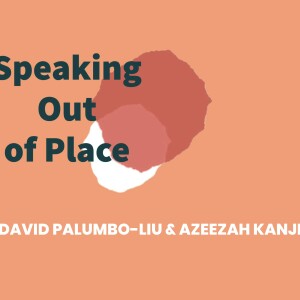
Creating an institutional space for the Critical Study of Zionism: A Conversation with Emmaia Gelman and Christine Hong
 2023-08-11
2023-08-11
Today we speak with Emmaia Gelman and Christine Hong, two of the founders of the new Institute for the Critical Study of Zionism. They tell us what motivated them and others to take up this project to create a space where the critical study of Zionism could take place in conversation with many other fields. We hear why the organizers wish to separate critical Zionist studies from conventional Jewish Studies as practiced in the academy, and locate it in the context of radical ethnic studies.
Emmaia Gelman is guest faculty in Social Sciences at Sarah Lawrence College and the founding Director of the Institute for the Critical Study of Zionism, which examines the political and ideological work of Zionist institutions beyond their direct advocacy for Israel. Her research and writing investigate the history of ideas about race, queerness, safety, and rights, and their production as political levers in the realm of hate crimes policy, surveillance, anti-terror measures, and war. She is at work on a critical history of the Anti-Defamation League (1913-1990) as a Cold War neoconservative institution, as well as an edited volume of social justice movement writings and academic research on resistance to the ADL. She is the co-chair of the American Studies Association Caucus on Academic and Community Activism, and a longtime activist in New York City on Palestine, policing, antiracism, and queer issues.
Christine Hong is Professor of Critical Race and Ethnic Studies (CRES) and Literature. She directs the Center for Racial Justice at UC Santa Cruz, serves on the board of directors of the Korea Policy Institute, an independent research and educational institute, co-chairs the UC Ethnic Studies Faculty Council, and co-edits the Critical Ethnic Studies journal. She is also a core member of the Ending the Korean War Teaching Collective. Her book, A Violent Peace: Race, Militarism, and Cultures of Democratization in Cold War Asia and the Pacific, was published by Stanford University Press in 2020. Along with Deann Borshay Liem, she co-directed the Legacies of the Korean War oral history project. She also guest edited a two-volume thematic issue of Critical Asian Studies on Reframing North Korean Human Rights (2013-14); a special issue of positions: asia critique on The Unending Korean War (2015); and a forum of The Abusable Past on “White Terror, ‘Red’ Island: A People’s Archive of the Jeju 4.3 Uprising and Massacre.”
More Episodes
Create your
podcast in
minutes
- Full-featured podcast site
- Unlimited storage and bandwidth
- Comprehensive podcast stats
- Distribute to Apple Podcasts, Spotify, and more
- Make money with your podcast
It is Free
- Privacy Policy
- Cookie Policy
- Terms of Use
- Consent Preferences
- Copyright © 2015-2024 Podbean.com






